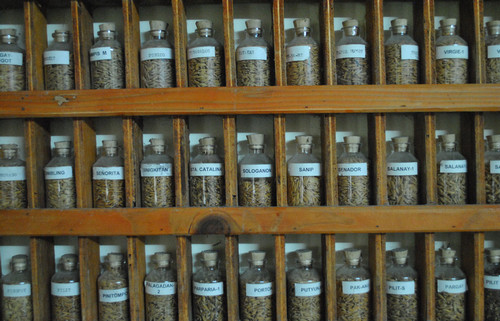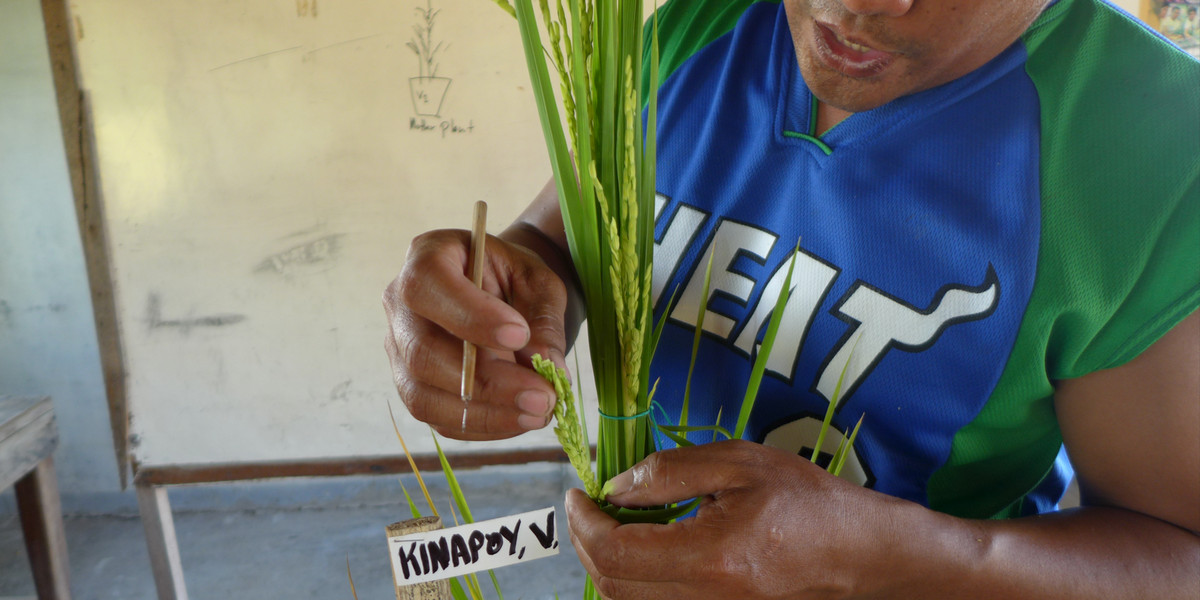On 24 April 2024, the European Parliament will vote in plenary on the proposal for the Plant Reproductive Material (PRM) marketing reform (2023/0227). This new regulation will shape the seed market and farmers’ seed systems for decades to come. On the occasion of the International Day of Peasant Struggles, we publish the following article by Patricia Verbauwhede and Bram Jacobs of Broederlijk Delen*, which outlines the issues at stake in this new legislation.
“The European Parliament is currently discussing a bill for the production and trade of plant reproductive material within the European Union. This legislative proposal on seeds is an important initiative that should take into account the rights of farmers and small seed growers instead of meeting only the interests of the large seed multinationals. A seed law tailored to the needs of the seed industry that leaves no space for farmer-managed seed systems threatens the diversity of our food and will ultimately have negative consequences for the free access to seeds for farmers in the Global South. That’s why Broederlijk Delen joined the “Raise our Forks for Diversity” petition by the Austrian organisation Arche Noah.
Our partner PELUM in Uganda also reached out to the agriculture committee of the European Parliament asking to adjust the seed legislation in the interest of farmers and citizens.
“To me seed is life. It brings out independence. It brings out a sense of ownership. You plant when you want, what you want, and where you want. […] Our ancestors used to share seeds. And because of that sharing spirit, this is why I have this little Bangaga nut seed. This way of sharing and keeping seeds has been good for us.“
About 75 percent of the genetic diversity of our food crops has disappeared since 1900, according to the Food and Agriculture Organisation of the United Nations (FAO). This is because all over the world efforts have been made to grow a limited number of genetically uniform, but high-yielding varieties. This one-sided focus on yield meant that local, genetically diverse, landraces were increasingly squeezed. Due to the impoverishment of genetic diversity, our crops and the food system are becoming vulnerable to disease and less equipped to adapt to climate change.
The new seed law risks to make the procedures for the registration and certification of varieties more complex and thus increase the administrative burden. The large seed companies are better equipped to deal with the additional administrative burden, but they are only interested in a limited number of crops for large-scale production. Small seed breeders are in danger of being sidelined if the bureaucratic burden increases.
Farmers’ rights
The right of farmers and horticulturists to harvest, use, exchange and sell their own seeds is enshrined in international treaties like the UN Declaration of the Rights of Peasants (UNDROP). Protecting this right is of great importance in order to preserve the genetic diversity of our food and to constantly adapt crops to changing conditions. The European legislative proposal must leave enough space for the free exchange of seeds and access to seeds for farmers and citizens.

Impact on the Global South
Trade agreements and development banks are putting pressure on countries outside Europe to harmonise their seed legislation with European standards and to switch to commercial seeds. In Uganda, for example, where 80% of local food production depends on locally stored, exchanged and traded farmer seeds, we can already see that seed legislation is slowly but surely being adapted to the standards of the large seed companies. The local trade of farmers’ seed could become illegal under new seed legislation. This leads to the loss of traditional and indigenous crops and undermines the autonomy of farmers at the bottom of the social ladder and their communities, to the benefit of local elites and multinationals. Women, who traditionally play an important role as seed custodians, thus find themselves in an even more precarious situation.
New genome techniques
Another threat is the European legislative proposal for crops developed using new genome techniques (NGT). A significant proportion of these crops would no longer fall under the strict regulations of ‘classic’ GMOs. The large-scale introduction of genetically modified crops not only undermines traditional agricultural practices. It also puts control of seed varieties in the hands of a few powerful companies such as Bayer, BASF, Corteva and Syngenta, which already dominate the seed market worldwide. Because the development of GMOs requires large investments, it is very likely that more and more patents will be taken out on the genetic properties of plants. GMOs (even if they are developed with NGT) therefore also pose a threat to the autonomy of farmers, biodiversity and the resilience of our food system.
What will be left of the Green Deal?
The new regulations on seeds are a worrying part of a broader trend of scaling back the ambitions of the European Green Deal. Despite the urgent need to reform the agricultural sector and make it more sustainable, these new legislative frameworks seem to serve the interests of large seed companies rather than those of farmers, consumers and the environment. It is ironic that at a time when urgent action is needed to tackle the climate and biodiversity crisis, policymakers seem to be bowing to pressure from industrial interest groups. This shift in policy priorities threatens to undo the progress made on sustainable agriculture and food security and casts a shadow over the ambitions of the European Green Deal.
It is crucial that seed legislation supports, not hinders, genetic diversity so that we can maintain a resilient and sustainable food system for the future, both here and in the Global South. European policymakers would do well to reaffirm their commitment to a greener and fairer future and to ensure that legislation on seeds and genetic engineering is consistent with the objectives of the European Green Deal and the Farm To Fork strategy.”
CIDSE and its member organisations call on the European Parliament to adopt an EU seed legislation that recognises the importance of small farmers in maintaining seed diversity and strengthens the human right of farmers to their seeds and their right to participation.
The EU law should be in line with the principles of the:
– UN Declaration on the Rights of Peasants and Other People Working in Rural Areas (UNDROP)
– International Treaty on Plant Genetic Resources for Food and Agriculture (ITPGRFA)
– Convention on Biological Diversity.
* Broederlijk Delen is one of the two Belgian CIDSE member organisations. This article was originally published in Dutch.
CIDSE contact: Manny Yap, Food and Land Officer (yap(at)cidse.org)
Cover photo: Rice breeding in the Philippines: Credit CIDSE

